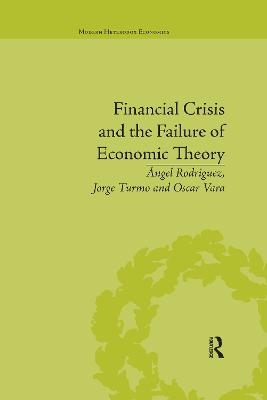
Financial Crisis and the Failure of Economic Theory
Seiten
2020
Routledge (Verlag)
978-0-367-66927-0 (ISBN)
Routledge (Verlag)
978-0-367-66927-0 (ISBN)
The global financial crisis of 2008 was largely unpredicted. If economic theory has a role to play in predicting future catastrophes then the methods we rely on need to change. The authors of this study propose a new theory of economics based on more detailed understanding of how and why people behave as they do within their environment. This anthropological approach uses the strengths of many existing economic theories, including Keynesian and Austrian economics, to present a new framework for anticipating and averting the financial crises of the future.
Ãngel Rodriguez, Autonomous University of Madrid Jorge Turmo Arnal, Autonomous University of Madrid Oscar Vara Crespo, Autonomous University of Madrid
Introduction 1. The Financial Crisis and Modern Economics: From Surprise to Puzzlement 2. A Different Look to Economic Theory: The Anthropological Approach 3. The 'Building Blocks' of Modern Economics: We Do Really Need a Meta-Theory 4. The Meta-Theory at Work: A Case Study in Growth Theory and Real Business Cycle Theory 5. Governments and the Financial Crisis: Making Economic Policy in the Dark 6. Explaining More Complex Phenomena: The Financial System Final Remarks
| Erscheinungsdatum | 01.10.2020 |
|---|---|
| Reihe/Serie | Modern Heterodox Economics |
| Verlagsort | London |
| Sprache | englisch |
| Maße | 156 x 234 mm |
| Gewicht | 385 g |
| Themenwelt | Geschichte ► Teilgebiete der Geschichte ► Wirtschaftsgeschichte |
| Wirtschaft ► Allgemeines / Lexika | |
| Wirtschaft ► Volkswirtschaftslehre | |
| ISBN-10 | 0-367-66927-7 / 0367669277 |
| ISBN-13 | 978-0-367-66927-0 / 9780367669270 |
| Zustand | Neuware |
| Haben Sie eine Frage zum Produkt? |
Mehr entdecken
aus dem Bereich
aus dem Bereich


